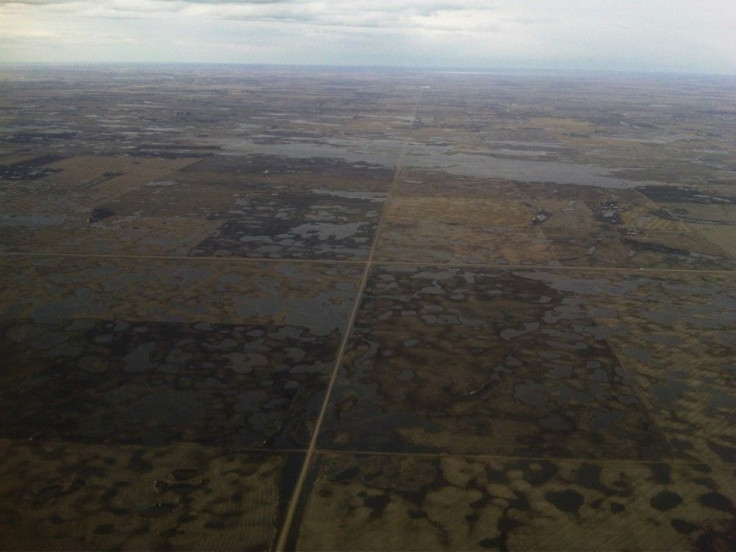Saskatchewan trims surplus; potash revenue surges

The Western Canadian province of Saskatchewan said on Monday its budget surplus for 2011-12 will be less than a quarter of what it had forecast, due in part to a summer of severe flooding.
Saskatchewan now looks to record a surplus of C$25 million ($24.3 million), down from the C$115 million it forecast in its March budget,
Flooding swamped vast areas of farmland, especially in the province's southeast, preventing some farmers from growing crops this year. Those wet conditions also held crude oil production in check, trimming oil-related revenues to C$1.38 billion.
Saskatchewan's total flooding costs amount to an estimated C$240 million, but the federal government is expected to cover nearly half of that amount, the province's Finance Department said.
Spending overall is projected to rise by nearly C$247 million from the budget figure to C$10.951 billion.
Bigger revenues from potash mining offset some of the added costs, with high prices and robust production contributing C$207 million more than expected for a total of C$588.3 million this fiscal year.
Saskatchewan has one of the world's richest reserves of potash, a nutrient used to fertilize crops, and also takes in part of the U.S.-Canada oilfield known as the Bakken play.
The provincial government expects potash prices to average US$421.75 a tonne of raw production in 2011, up from the budget estimate.
Saskatchewan is the home base of world leader Potash Corp of Saskatchewan, and Potash Corp's rivals, Mosaic Co and Agrium Inc, also have potash mines in the province.
The conservative Saskatchewan Party government, which was re-elected earlier this month, said it would pay down its public debt by C$325 million to a year-end total of C$3.8 billion by transferring money from another fund.
Saskatchewan, flush with jobs in the mining and oil and gas sectors, has the lowest unemployment rate among Canada's 10 provinces. While other provinces sank into deficit during the recession, Saskatchewan has continued a streak of surpluses.
© Copyright Thomson Reuters 2024. All rights reserved.




















